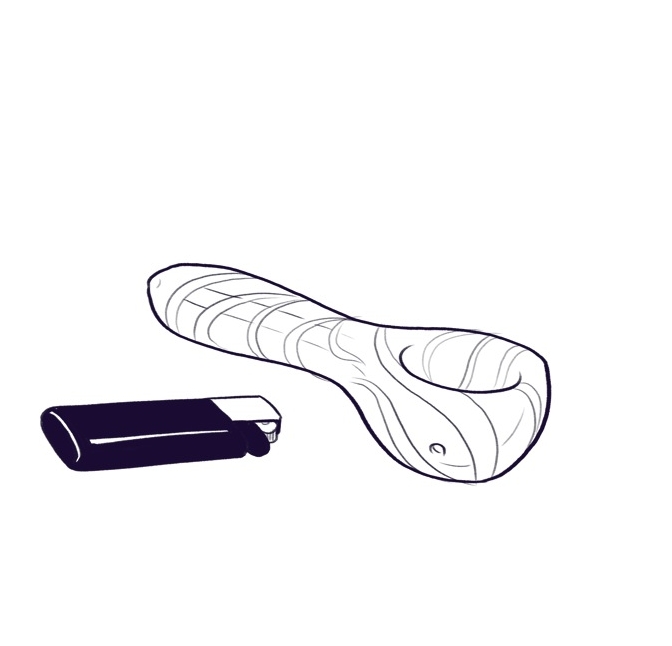Nightmare Becomes Reality: You’ve Found Drug Paraphernalia

Maybe you were looking for it as confirmation of what you suspected, or perhaps it was by accident. Nonetheless, the drug paraphernalia you found in your loved one’s bedroom came as a horrible shock. It is important however, to remain calm.
Illustration © Eleanor Davis
It’s every parent’s nightmare: drug paraphernalia
You enter your kid’s room, hesitate, feeling somewhat guilty. You finally start looking around. Maybe nothing obvious stands out. You open a drawer, then another, look under the lamp, and then you find it: drug paraphernalia. Perhaps it’s an empty baggy, or worse, a syringe. For a moment you can’t believe what you’re seeing. Slowly your mind comes clear… she’s still using … she’s been lying.
Your first inclination is to confront your child. Show them you know they’ve been lying to you. Still upset, you approach your child. Where does it lead? They deny it. They say it’s old stuff…. Quickly, you find yourself in a fight.
Take a deep breath
I wonder, though, if you can hold off. Look at the “evidence” as information only. Incorporate it into a larger plan. Here’s what I mean.
Let me start by saying it’s not a fair fight. Gather your information, whether that means looking in their room or through the cell phone bill to see whom they’ve been calling. You need to have the best information about what is going on.
(I had a parent tell me they learned their son was making efforts to enter treatment. They knew this because they saw the number of the treatment program on the cell phone charges.)
The central question remains the same
At this moment, when he walks through the door, is he high or is he sober? Your answer to this question will determine your behavior. If he’s sober, you’re going to reward and encourage the non-use. If he’s high, you’re going to remove rewards, disengage yourself, and allow natural consequences.
Finding that paraphernalia is information that helps to answer this central question.
And, finding that paraphernalia makes you surer of yourself when it’s time to have the talk about treatment.
Prepare your conversation
So, stay calm. Wait until the moment is right to talk about treatment. It might go something like this:
“I know you’ve been struggling with the drug use, and there are times you think of going to treatment. You’re probably at a crossroads. I understand that the drugs can increase your anxiety. Will you consider going to talk to this counselor about the anxiety? I have their number. You don’t have to continue if it doesn’t work for you.”
So, take that “evidence” and use it to your advantage. You’re likely to lose ground with a rash reaction. Try to stay calm and think strategically. Keep the big picture and the main objective at in mind at all times.
For unlimited access to Allies in Recovery’s online learning platform featuring our 8 Video Modules, join today. Learn more here.
